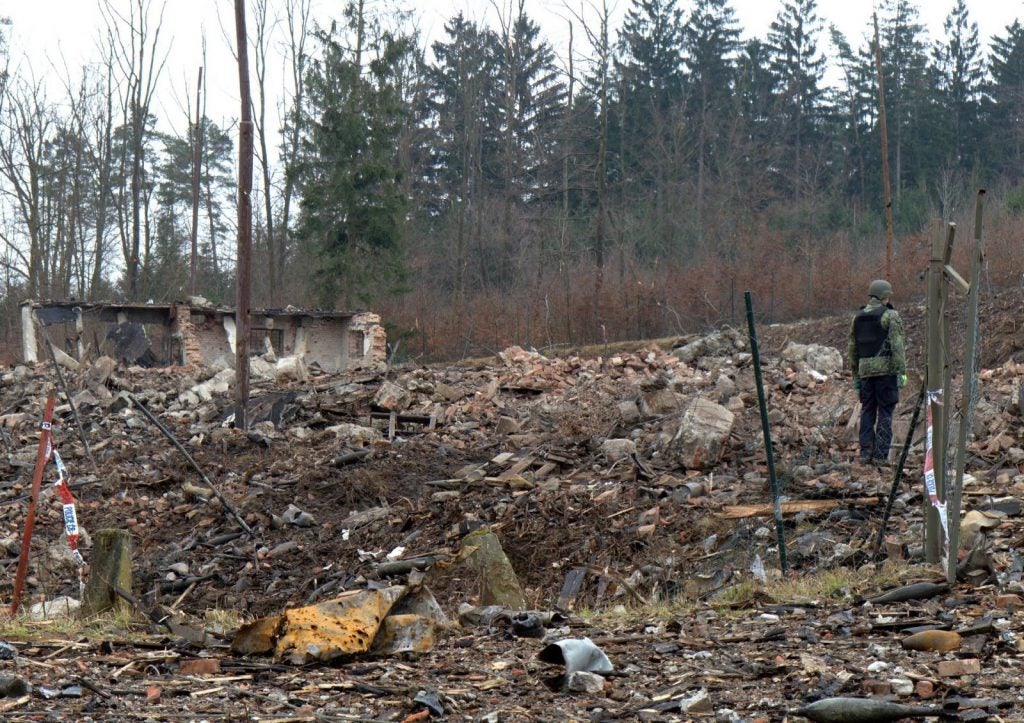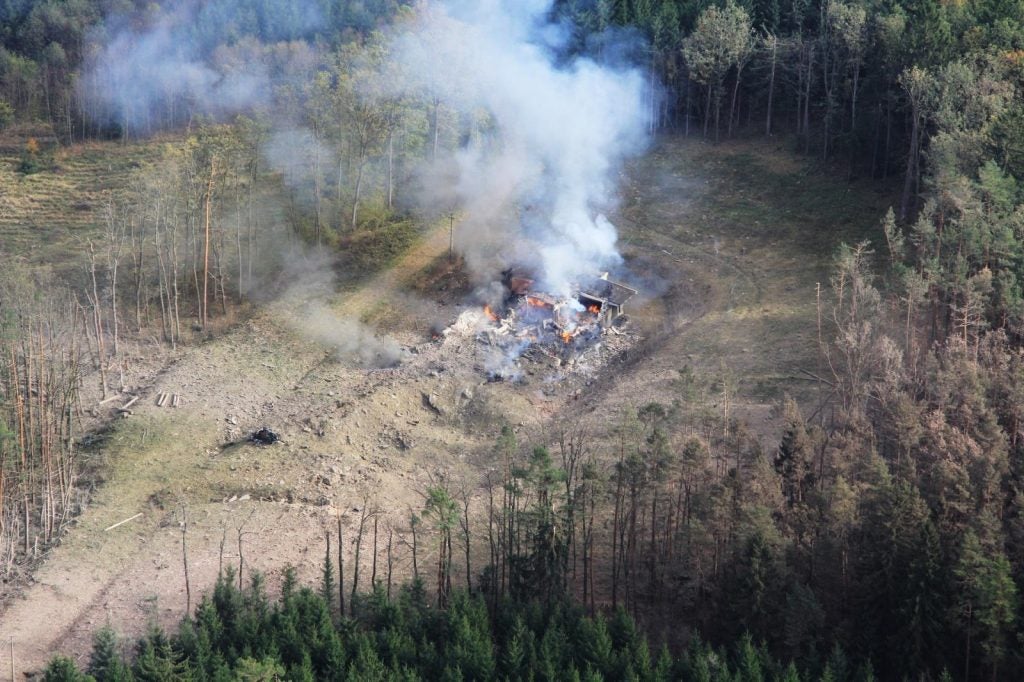Czech Republic Accuses GRU Of 2014 Ammunition Depot Explosion
The Czech Republic has ordered 18 Russian diplomats identified as GRU and SVR intelligence operatives to leave the country, after Prime Minister Andrej Babis said late on 17 April, that there was “unequivocal evidence” of GRU involvement in an October 2014 explosion at an ammunition depot in Vrbětice, in the east of the country.
In a nighttime press conference, Babis said that officers from the Russian military intelligence agency’s Unit 29155 were involved in the explosion. Open source investigators Bellingcat and Western intelligence agencies alike have previously linked members of the unit to multiple assassination plots and destabilization attempts across Europe, including the 2018 Salisbury poisoning of former double agent Sergei Skripal and his daughter Yulia with a novichok nerve agent.
The organized crime unit of the Czech police released a wanted notice on the same day for two unit members who they believe to have committed “serious crimes”. Passport details for “Alexander Petrov” and “Ruslan Boshirov” show that they are Anatoliy Vladimirovich Chepiga and Alexander Yevgenyevich Mishkin, the same two GRU operatives accused of being the Skripal poisoners.
The Vrbětice ammunition depot explosion occurred in the morning of 16 October, in the depot’s Warehouse No. 16. Two civilian employees were killed in the explosion, which destroyed the warehouse and threw the 50 tons of ammunition inside as far as 800 meters from ground zero. A second explosion in Warehouse No. 12 happened on 3 December of the same year. Cleanup efforts only concluded on 13 October last year, with Czech police pyrotechnicians having worked 12,243 shifts, with an average shift duration of 12-14 hours. 547 truckloads of ammunition was removed from the blast sites, while over 18,000 pieces of ammunition were disposed of in a temporary blast pit built on site. The Czech police stated during the announcement of cleanup completion that no one had been killed or seriously injured for the entirety of the cleanup work, saying then that investigations were still underway.

The weekly newsmagazine Respekt (also an investigative partner of Bellingcat) has since linked the involvement of Chepiga and Mishkin in the explosions to the May 2015 poisoning of Bulgarian arms manufacturer Emilian Gebrev. At the time, the poisoning was suspected to have been related to Ukraine’s attempts to procure munitions from his company, at the height of fighting in Donbass against Russian-backed militias and Russian forces deployed to support them. In comments made on Czech Television on Sunday, Czech acting interior minister Jan Hamáček said that the police were working on the assumption that the munitions explosion had not been intended to occur in the Czech Republic, but after the munitions had been transported out of the country.
While the reasoning for the timing of the accusations and the expulsion of the diplomats is still unknown, Respekt reports that investigators were able to make progress after receiving new information last year. The accusations are shaping up to become the lowest point in Czech-Russian relations since the former’s independence in 1989, with Russia since ordering a retaliatory expulsion of 20 diplomats from the Czech embassy in Moscow, alongside banning it from hiring Russian employees.
The Czech Senate’s foreign policy committee has since expressed its support for the expulsion of the 18 diplomats, in addition to proposing the expulsion of all Russian diplomatic staff save for the Russian ambassador. The large size of Russia’s diplomatic staff in the Czech Republic has long been suspected as cover for intelligence operatives, and expulsion of all but the ambassador would severely impair the ability to carry out Russian intelligence operations in the country. However, non-official cover operatives like Chepiga and Mishkin during their Czech foray will remain a harder target, although one somewhat hurt by loss of access to their official cover counterparts.

